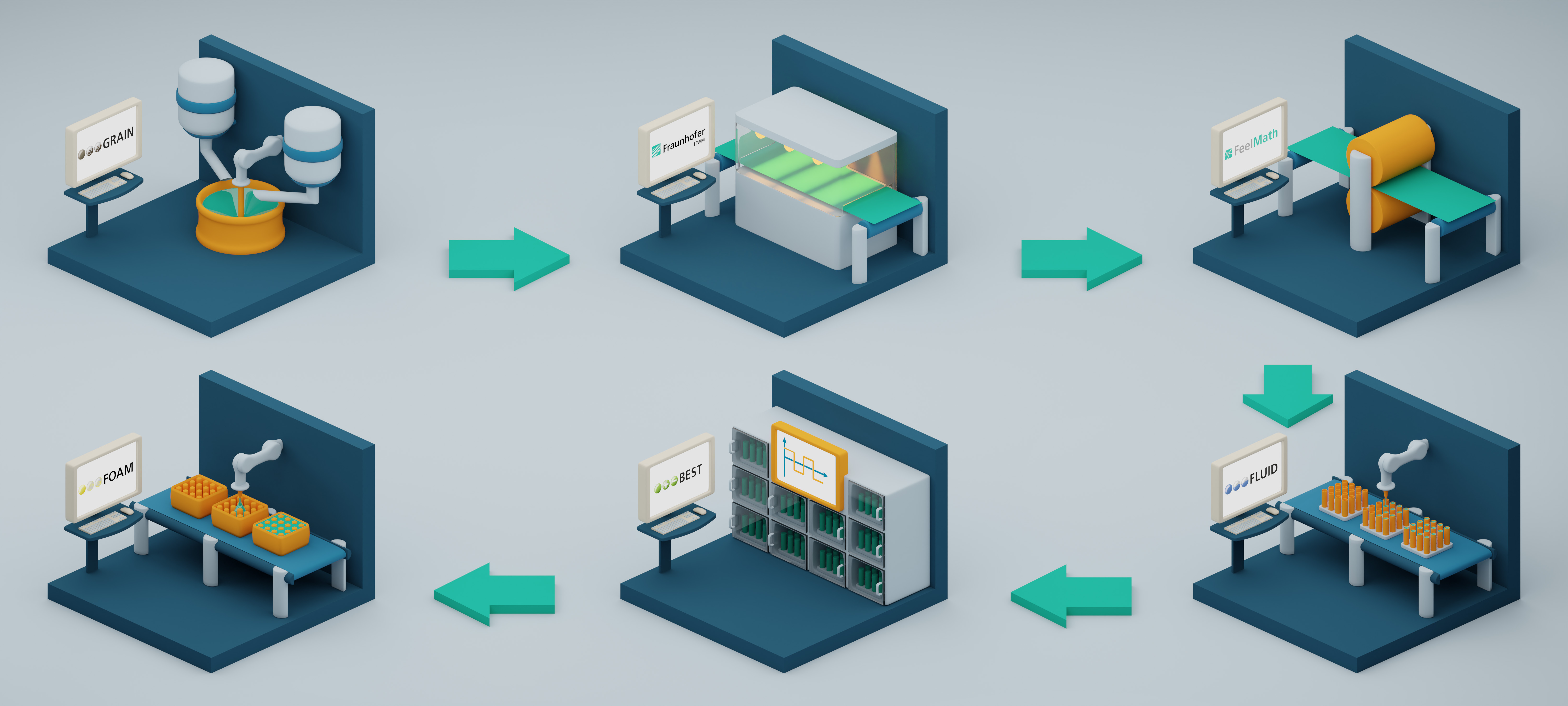State Government Funds Battery Cell Research at Fraunhofer ITWM
Digital Twin for All Process Steps in Battery Production
Optimizing batteries, whether for e-mobility or for large storage systems, is one of the most important tasks for industry and science. At the Fraunhofer Institute for Industrial Mathematics ITWM, the simulation of battery models has been part of day-to-day business for years. The Rhineland-Palatinate Ministry of Science and Health is now supporting a new project with just under one million euros to model the entire manufacturing process.
The path to a ready-to-use battery is long because it involves many steps. These include the calendering and drying of the electrode layers, the filling, venting and forming of the battery cells and finally the foaming and thermal separation of the battery cells in the battery module. The aim of the project »Digitalization of Battery Cell Production to Create a Battery Twin for the Entire Product Life Cycle«, or »DiBaZ« for short, is to depict these processes in a digital model.
Digital Battery Twin Accelerates Production Processes
Dr. Konrad Steiner, head of the department »Flow and Material Simulation« at Fraunhofer ITWM, is coordinating »DiBaZ« and refers to the institute's extensive expertise in the field of battery research. "At the end of the project, we will be able to offer our industrial partners a model that simulates individual process steps in battery production, enables non-destructive quality control and includes energy management with predictive control. We are delighted that the state government is supporting this important innovative project at such short notice.«
Expertise from Four Departments
In total, researchers from four departments are working on »DiBaz«, each contributing their specific knowledge. For example, the department »Flow and Material Simulation« focuses on the simulation of battery cell production and battery performance, while the department »Materials Characterization and Testing« contributes experience in the quality control of coatings during production.
© Fraunhofer ITWM
We support various battery production processes with our software tools. The processes are shown in chronological order: Mixing of the electrode slurries, electrode drying, calendering of the electrodes, electrode drying, electrolyte filling of the assembled cells, cell forming and foaming of battery modules.
The division »Mathematics for Vehicle Engineering« focuses on hybrid vehicle simulation and online monitoring of data-driven processes. Energy management and predictive maintenance in production are the areas of expertise of the department »System Analysis, Forecasting and Control«. They are particularly important in energy-intensive process steps such as coating and drying.



Battery Research Supports Kaiserslautern as a Production Location
State Secretary Dr. Denis Alt handed over the funding decision to Fraunhofer ITWM at the beginning of March 2024 and emphasized the value of the research for the region. »The DiBaZ project shows that artificial intelligence and simulation models already have enormous application potential. They enable our science, our economy and our society to make many great improvements and can make valuable contributions to solving our major social challenges. The Fraunhofer ITWM not only has its finger on the pulse of the times with its topics, but is also in the right place to work on the issues,« said Alt. He also referred to the Gigafactory for battery cell production, which is being built in Kaiserslautern.
For press release on the Fraunhofer ITWM-Website click here
- Press Release for Download as PDF [only available in German] (itwm.fraunhofer.de)
- Picture for Download: Production processes in chronological order (itwm.fraunhofer.de)
- Picture for Download: Handover of the notification at the Fraunhofer ITWM (itwm.fraunhofer.de)
- Picture for Download: Terahertz waves for quality control of batteries (itwm.fraunhofer.de)
- Picture for Download: Presentation of our software BEST (itwm.fraunhofer.de)
